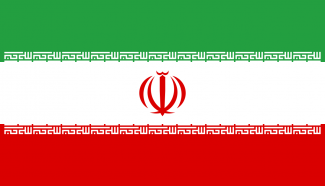Iran: Looking Towards Space!
Apart from its nuclear bravado, Iran is simultaneously exploring new grounds up above in the sky for expanding military influence, and that is space. In early February this year, Iran fired a sounding rocket into outer space to mark the opening of its first space centre. Such rockets are usually instrument-carrying crafts designed to take measurements and perform scientific experiments during their sub-orbital flight. Iran also proposes to move further by launching their first home-produced satellite, "Omid" (Hope), in March 2009. They would use the same site in western Iran for this first satellite launch. 2.
One of their vocal diplomats recently criticized India for launching the Israeli spy satellite TECSAR. These two acts of Iran bring forward contradictions in their space policies. On the one hand, Iran feels that India is helping Israel to conduct espionage operations, and on the other, they are working towards launching a satellite for military purposes. Experts believe that the Omid satellite is a 10-year project with major military dimensions and could be essentially used for intelligence-gathering purposes.
Iran’s President Mahmoud Ahmadinejad attended the February 04 rocket launch and the opening of their first national space launch centre, giving indications of how much Iran values this project. This rocket, dubbed Kavoshgar-1, has a close resemblance to Iran's longer-range missile Shahab-3, which has a range of around 2000 km, a range sufficient to handle Israel and US bases in the Gulf.
Incidentally, Iran announced its presence in space on October 28, 2005, with the launch of the first Iranian satellite, Sinah-1. This satellite was built and launched by Russia from their Plesetsk Space Center. Now, this new space centre, which includes an underground control centre and launch pad, would boost Iran’s satellite programme and help it realize its dreams of becoming a satellite-launching nation.
Iran has been cautiously looking at its satellite development programme for the last few years. They understand that the most significant advantage of satellite technology lies in its dual-use nature. They know for sure that the way the US is trying to corner them on a nuclear issue would not be able to do so with respect to their space ambitions. They have the Iranian National Committee (INCOPUOS) on Peaceful uses of outer space in place to handle issues related to their space dreams. Today, Iran knows that they need to be self-reliant in the space arena. With their nuclear adventurism, they may find it difficult to get international support. Russia and China could also become cautious about dealing with them in the space arena.
Iran’s space probe Kavoshgar-1 has now started sending data back to Earth from an altitude of up to 250 km. Since its launch in the first week of February 2008, Kavoshgar has been sending real-time data back to the base, which Iranian scientists are analysing to check the performance of its systems. This probe is expected to return to the Earth; however, its details are unknown. The success of this mission is likely to boost the confidence of the Iranian scientists, and the data received during this entire exercise is expected to help them take their space programme further. 7.
With US forces sitting next door and bullish Israel in the neighbourhood, Iran needs a continuous flow of intelligence inputs, and clever investment in satellite technology could offer them a viable option. Iran also has plans to invest in small satellites. Remarkably, against the backdrop of the Chinese anti-satellite test, they could even think of investing in satellite technology as a weapon of deterrence. Looking at their current progress, it could be predicted that within half a decade, Iran could ‘enlighten’ Israel that they are capable of damaging their satellites by putting ‘space mines’ in the form of small satellites into space.
Against the backdrop of these realities, it looks very courageous that Iran is blaming India for helping Israel!
